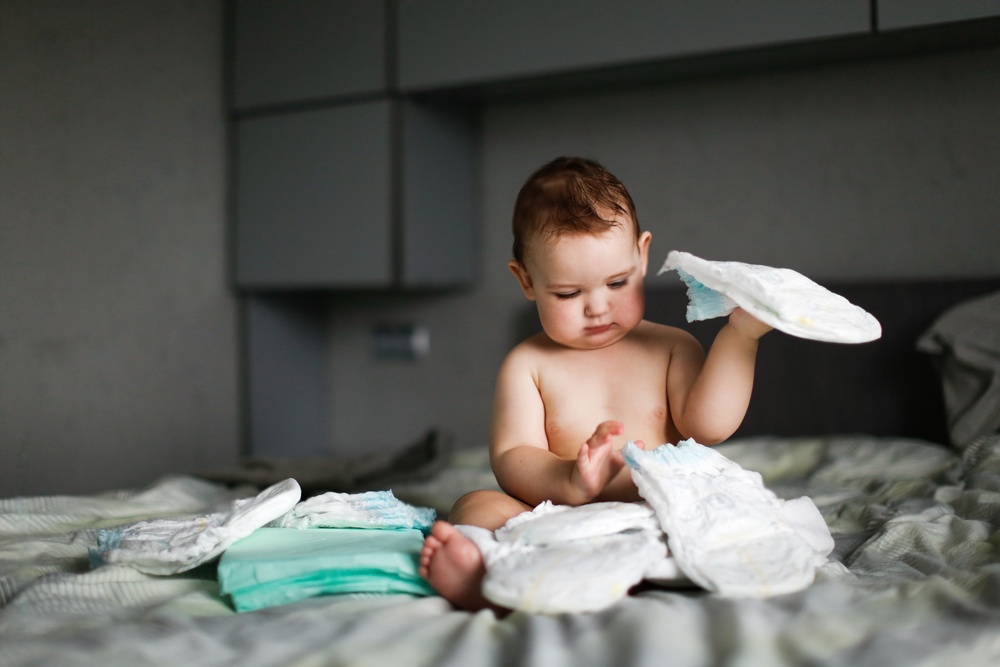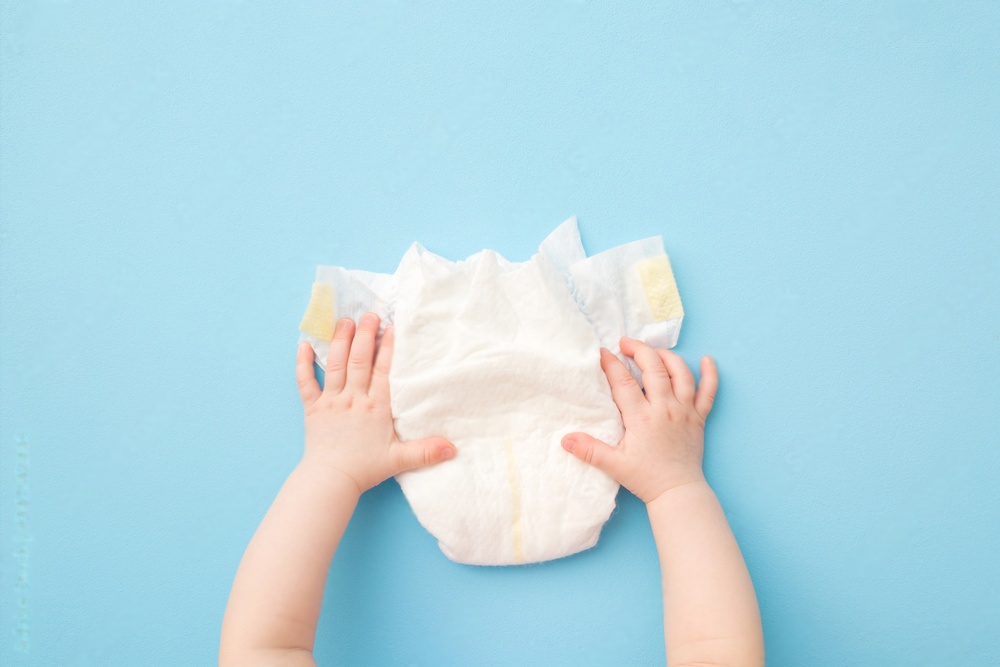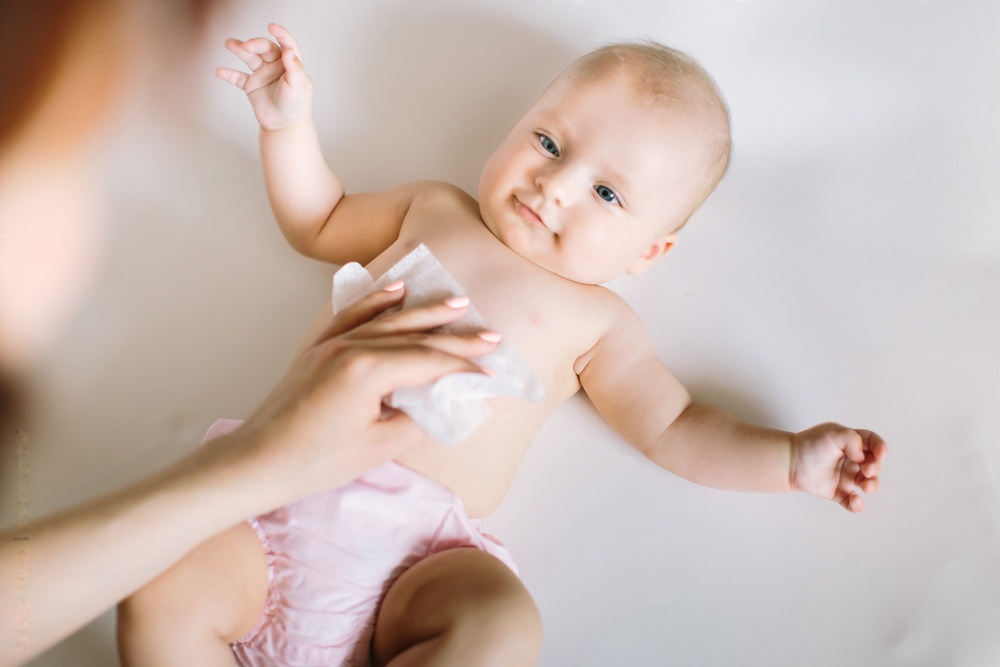Welcoming a newborn into the family brings immense joy and responsibilities. Among the essentials that parents need to consider, newborn diapers stand out as one of the most crucial items. In this article, we’ll delve into the myriad benefits and utility of newborn diapers, shedding light on their importance in ensuring comfort, hygiene, and convenience for both the baby and parents.
Importance of Newborn Diapers
Comfort and Safety
Newborns have delicate skin that requires gentle care and protection. High-quality newborn diapers offer superior comfort with soft materials that prevent chafing and irritation. Moreover, they provide a snug fit, ensuring that the baby feels secure and relaxed throughout the day and night.
Absorbency
One of the primary functions of newborn diapers is to absorb urine and feces effectively. Modern diapers are equipped with advanced absorbent materials that quickly lock away moisture, keeping the baby’s skin dry and free from discomfort. This feature is especially crucial during the newborn stage when frequent diaper changes are necessary.
Convenience for Parents
Newborn diapers offer unparalleled convenience for parents, allowing them to handle diaper changes efficiently, whether at home or on the go. Disposable diapers, in particular, simplify the task by eliminating the need for washing and drying cloth diapers, making them a preferred choice for many busy parents.
Types of Newborn Diapers
Disposable Diapers
Disposable diapers are widely popular due to their convenience and ease of use. They come in various sizes and designs, catering to the specific needs of newborns. With features like stretchable waistbands and adjustable tabs, disposable diapers offer a comfortable and secure fit, ensuring maximum protection against leaks.
Cloth Diapers
Cloth diapers have made a resurgence in recent years, driven by concerns about environmental sustainability and baby skin health. Made from soft, breathable fabrics, cloth diapers are reusable and eco-friendly, making them a preferred choice for environmentally-conscious parents.
Hybrid Diapers
Hybrid diapers combine the convenience of disposable diapers with the eco-friendly benefits of cloth diapers. These innovative diapers feature a reusable outer cover and disposable inserts, providing a balance between convenience and sustainability.
Features to Look for in Newborn Diapers
Size and Fit
Choosing the right size of diapers is essential for ensuring optimal comfort and leakage protection. Newborn diapers come in various sizes to accommodate the growth and development of the baby. It’s crucial to select a size that fits snugly around the waist and legs without being too tight or too loose.
Material
The material composition of diapers plays a significant role in determining their comfort and absorbency. Look for diapers made from soft, hypoallergenic materials that are gentle on the baby’s skin and free from harsh chemicals or fragrances.
Wetness Indicator
Many modern diapers are equipped with a wetness indicator, which changes color when the diaper is wet. This feature allows parents to quickly assess when it’s time for a diaper change, ensuring optimal hygiene and comfort for the baby.
Hypoallergenic
For babies with sensitive skin or allergies, hypoallergenic diapers are a must-have. These diapers are specially designed to minimize the risk of irritation and allergic reactions, providing peace of mind for parents.
Environmental Impact
Disposable vs. Cloth Diapers
The choice between disposable and cloth diapers also has environmental implications. While disposable diapers are convenient, they contribute to landfill waste and take hundreds of years to decompose. Cloth diapers, on the other hand, are reusable and significantly reduce the carbon footprint associated with diapering.
Biodegradability
Some brands offer biodegradable disposable diapers made from plant-based materials that break down more quickly in landfills. While these diapers may cost slightly more, they offer an eco-friendly alternative for environmentally-conscious parents.
Cost Comparison
Initial Investment
The initial cost of cloth diapers may seem higher than disposable diapers due to the need for multiple sets of diapers and accessories. However, in the long run, cloth diapers can lead to substantial cost savings as they are reusable and eliminate the ongoing expense of purchasing disposable diapers.
Long-term Costs
When considering the long-term costs of diapering, it’s essential to factor in expenses such as laundry detergent, water, and electricity for washing cloth diapers. While these costs may vary depending on individual circumstances, cloth diapers generally prove to be more cost-effective over time compared to disposable diapers.
Health Benefits
Reduced Risk of Diaper Rash
Properly fitting and absorbent diapers help reduce the risk of diaper rash, a common skin condition characterized by redness, irritation, and discomfort. By keeping the baby’s skin dry and free from irritants, newborn diapers contribute to overall skin health and comfort.
Improved Sleep for Baby
Uninterrupted sleep is essential for a newborn’s growth and development. Comfortable and absorbent diapers ensure that the baby stays dry and comfortable throughout the night, promoting better sleep quality for both the baby and parents.
User Tips for Newborn Diapers
Proper Changing Technique
Mastering the art of diaper changing is essential for new parents. Ensure that you have all the necessary supplies within reach, including diapers, wipes, and diaper rash cream. Clean the baby’s diaper area gently but thoroughly, and always secure the diaper snugly to prevent leaks.
Diapering Frequency
Newborns typically require frequent diaper changes, with some babies needing up to 10-12 diaper changes per day. Keep track of your baby’s feeding and diapering schedule to ensure timely changes and prevent discomfort or skin irritation.
Choosing the Right Size
As your baby grows, their diaper size may need to be adjusted accordingly. Check the fit of the diaper regularly, and switch to a larger size if the current diaper feels too snug or leaves marks on the baby’s skin.
Conclusion
Newborn diapers play a vital role in ensuring the comfort, hygiene, and well-being of infants. From providing superior absorbency to offering convenience for parents, the benefits of newborn diapers are undeniable. Whether opting for disposable, cloth, or hybrid diapers, parents can make an informed choice based on their preferences, budget, and environmental values.
FAQs
- How often should I change my newborn’s diaper?
- Newborns typically need to be changed every 2-3 hours or whenever they have a bowel movement.
- Are cloth diapers better for the environment than disposable diapers?
- Cloth diapers are generally considered more environmentally friendly than disposable diapers due to their reusability and reduced landfill waste.
- What size diapers should I buy for my newborn?
- Newborn diapers come in various sizes, typically ranging from “Newborn” to “Size 3.” It’s best to start with “Newborn” size and adjust as needed based on your baby’s weight and growth.
- How do I prevent diaper leaks at night?
- To prevent diaper leaks at night, ensure that the diaper fits snugly around your baby’s waist and legs. You can also try using overnight diapers designed for extended wear and maximum absorbency.
- Can I use diaper rash cream with every diaper change?
- While diaper rash cream can be beneficial for preventing and treating diaper rash, it’s not necessary to use it with every diaper change. Reserve its use for times when your baby’s skin appears irritated or red.
- How do I know if my baby’s diaper is too tight?
- Signs that a diaper is too tight include red marks or indentations on your baby’s skin, discomfort or fussiness during diaper changes, and leaks around the waist or legs. If you notice any of these signs, try adjusting to a larger size diaper.



